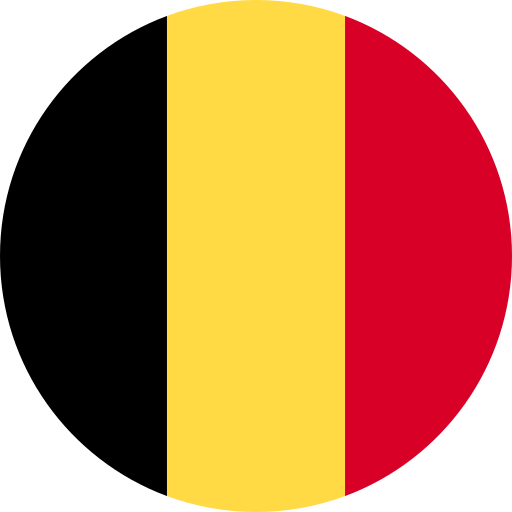French and Flemish are more than just languages; they’re keys to rich cultures and histories spread across the globe. If you’ve ever wondered how many countries embrace these languages, you’re in for an enlightening journey. French is one of the most widely spoken languages worldwide, while Flemish, a variant of Dutch, holds a significant place in Belgium.
Understanding where these languages thrive helps you appreciate their global impact. From Europe to Africa and beyond, millions communicate in French daily. Meanwhile, Flemish remains integral to Belgium’s identity. Let’s dive into the fascinating world of these languages and uncover how many countries celebrate them as part of their heritage.
Key Takeaways
- French as a Global Language: French is an official language in 29 countries with approximately 300 million speakers worldwide, showcasing its extensive reach across continents.
- Flemish’s Regional Importance: Flemish, primarily spoken in Belgium by around 6 million people, plays a crucial role in the country’s cultural identity but lacks official recognition outside Belgium.
- Cultural Contributions: Both languages significantly impact their respective cultures—French is celebrated for its literary and philosophical contributions, while Flemish reflects local heritage through art and customs.
- Linguistic Roots: French belongs to the Romance language family with Latin roots, whereas Flemish is a variant of Dutch from the Germanic family, highlighting their distinct grammatical structures and phonetics.
- Media Demand: The demand for proficient voice talent fluent in both French and Flemish remains high due to their cultural significance and use in various media formats.
- Historical Influence on Language Spread: Historical ties and colonial influences have facilitated the widespread use of French globally while maintaining Flemish’s regional focus within Belgium.
Overview of French and Flemish Languages
French serves as an official language in 29 countries, making it one of the most widely spoken languages worldwide. Countries such as France, Canada, Belgium, Switzerland, and several African nations embrace French as a primary or secondary language. Approximately 300 million people speak French across these regions.
Flemish is a variant of Dutch predominantly spoken in Belgium, particularly in the Flanders region. While not recognized as an official language outside Belgium, it plays a significant role in Belgian identity and culture. Around 6 million people communicate in Flemish daily within Belgium.
Both languages contribute to diverse cultural expressions globally. You may encounter voiceovers that utilize these languages for various media formats, including advertisements and educational content. The demand for proficient voice talent fluent in French and Flemish remains high due to their cultural significance and reach in international markets.
Global Distribution of French
French is a global language with a significant presence across multiple continents. Approximately 300 million people speak French in 29 countries, making it one of the most widely spoken languages worldwide.
Number of French-Speaking Countries
French exists as an official or administrative language in 29 countries, including France, Canada, Belgium, Switzerland, and several African nations such as Ivory Coast and Senegal. Additionally, many territories and regions recognize French due to historical ties or colonial influence. This widespread use contributes to its status as a key language for international diplomacy and business.
Regions Where French is Spoken
French is spoken in various regions across the globe:
- Europe: Predominantly in France, Belgium, Luxembourg, and parts of Switzerland.
- North America: Significant populations exist in Canada, especially Quebec.
- Africa: Numerous countries like Democratic Republic of Congo and Madagascar have large French-speaking communities.
- Caribbean: Various islands maintain French as an official language.
- Pacific Islands: Some territories like New Caledonia utilize French extensively.
The broad distribution of the French language influences cultural expressions globally. As demand grows for proficient voice talent fluent in both French and regional dialects, opportunities arise for voice artists specializing in diverse media formats.
Overview of Flemish Language
Flemish, a variant of Dutch, is integral to Belgium’s cultural identity. It encompasses the language spoken in the Flanders region and stands as an essential part of the country’s heritage.
Number of Flemish-Speaking Countries
Flemish primarily exists within Belgium, where approximately 6 million speakers reside. No other countries officially recognize Flemish as a distinct language. However, due to migration and cultural ties, some communities outside Belgium may speak it informally.
Regions Where Flemish is Spoken
Flemish is predominantly spoken in Flanders, which includes provinces like West Flanders, East Flanders, Antwerp, and Limburg. This regional concentration ensures that Flemish remains vibrant and influential in local media and education. The demand for voice talent fluent in Flemish highlights its significance in various media formats—advertisements often feature voice artists who can convey the nuances of this dialect effectively. Such expertise enhances communication strategies aimed at Flemish-speaking audiences.
Comparison Between French and Flemish
French and Flemish hold significant cultural value in their respective regions. French, with its rich literary heritage and global influence, serves as a bridge across diverse cultures. Flemish, while less widely spoken, embodies the identity of Belgium, particularly in Flanders. Both languages contribute to a unique cultural landscape that shapes local traditions.
Cultural Significance
French is celebrated for its contributions to art, philosophy, and diplomacy. Many renowned works of literature originate from French-speaking authors, influencing global thought. In contrast, Flemish culture reflects Belgium’s regional heritage through distinct forms of art and local customs. The appreciation for both languages cultivates pride among speakers and fosters cultural exchange within multilingual communities.
Linguistic Similarities and Differences
French belongs to the Romance language family, deriving from Latin roots. It features complex grammar structures and an extensive vocabulary influenced by various dialects over centuries. Flemish is a variant of Dutch within the Germanic language family; it shares similarities with Dutch but maintains unique phonetic characteristics.
Both languages share common elements like loanwords due to historical interactions; however, pronunciation differences often lead to misunderstandings among speakers. Understanding these distinctions enhances communication effectiveness when engaging voice talent fluent in either language for projects targeting specific audiences or markets.
Recognizing the cultural significance alongside linguistic similarities helps in selecting proficient voice actors or artists for projects that require authentic representation of either French or Flemish-speaking demographics.
Conclusion
Exploring the realms of French and Flemish languages reveals their profound cultural significance. With French spoken in 29 countries across various continents it’s a vital part of international communication and diplomacy. Its rich literary heritage bridges diverse cultures around the world.
On the other hand Flemish holds a special place in Belgium’s identity. Though primarily confined to Flanders its impact on local culture is undeniable. Understanding these languages enhances appreciation for their unique contributions to global diversity.
Whether you’re interested in language learning or seeking voice talent recognizing the importance of these languages can open doors to countless opportunities. Embracing both French and Flemish enriches your connection with vibrant cultures that continue to thrive today.
Frequently Asked Questions
What is the significance of the French language globally?
French is one of the most widely spoken languages, with around 300 million speakers across 29 countries. It holds cultural and historical importance, serving as a key language for international diplomacy, business, and media.
How many people speak Flemish?
Flemish is primarily spoken in Belgium, with approximately 6 million speakers concentrated mainly in the Flanders region. While not officially recognized outside Belgium, it plays a crucial role in the country’s identity and culture.
In which regions is French commonly spoken?
French is spoken across multiple continents, including Europe, North America, Africa, the Caribbean, and the Pacific Islands. It serves as an official or administrative language in several countries worldwide.
Why is there demand for voice talent fluent in French and Flemish?
The cultural significance of both languages creates high demand for proficient voice talent. They are essential for effective communication in local media and advertisements that target French- and Flemish-speaking audiences.
What are some linguistic differences between French and Flemish?
French belongs to the Romance language family derived from Latin roots, while Flemish is a variant of Dutch within the Germanic family. These differences can lead to misunderstandings despite some shared loanwords due to historical interactions.







